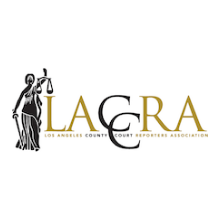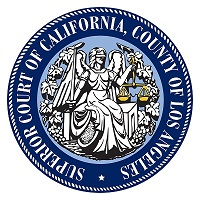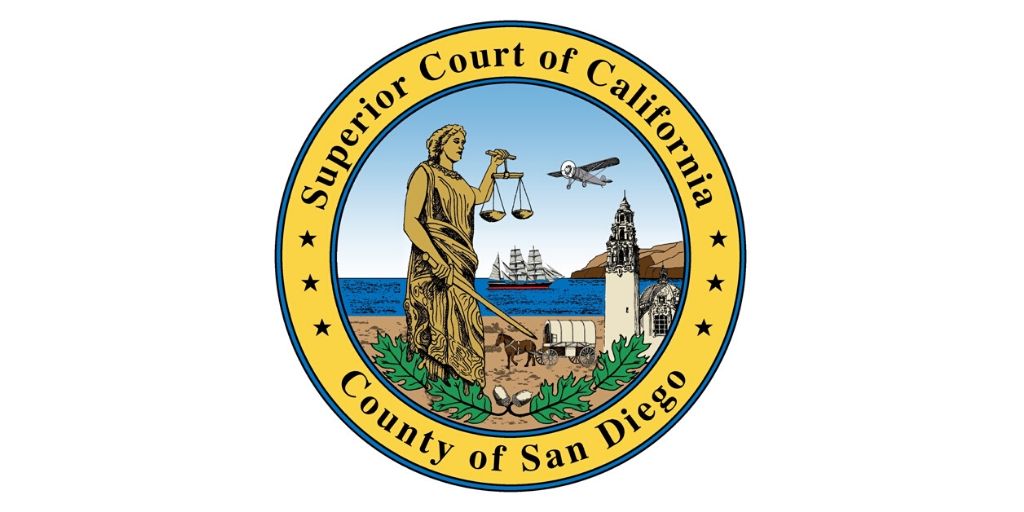Mock CSR (Revised 10/18/10)
Created by Bonnie Chufar-Comstock, CSR/Instructor; Lorri Doll, CSR/Instructor
Argonaut Court Reporting
Click here to download PDF version.
Click here to download answer sheet.
Medical Vocabulary
1. b.i.d. means
- at bedtime
- twice a day
- three times a day
- in the morning
2. To research the spelling of a drug, a reporter would look in
- Dorland’s
- The PDR
- Taber’s
- Webster’s
3. Which bone has no movable joint?
- femur
- radius
- cranium
- maxilla
4. Which is the throat?
- pharynx
- larynx
- trachea
- esophagus
5. What is palpitation?
- fluttering heartbeat
- listening to sounds in the body
- feeling with the hands, tapping
- all of the above
6. The last section of the small intestine is called
- duodenum
- jejunum
- ileum
- ilium
7. What is the clot in a vessel called?
- hyoid
- stenosis
- aneurysm
- embolism
8. Dys means
- easy
- abnormal
- lack of
- change
9. The os innominatum, ischium, ilium, and acetabulum all have to do with the
- pelvis
- skull
- shoulder
- small intestine
10. Phlebo means
- blood
- arteries
- veins
- heart
Legal Vocabulary
11. Subpoena duces tecum is
- a document demanding the person named to appear in court
- a writ commanding the person named to produce in court certain designated documents.
- a writ issued by a judge to stay a legal proceeding
- none of the above
12. Prima facie means
- “at first view” or evidence which is sufficient to prove or establish a fact unless contrary evidence is presented
- as far as it goes
- “things done” or things which are a part of the case
- prime evidence in a case
13. In propria persona means
- permission granted by the court to a pauper or poor person to bring a suit without paying the court costs
- “by the fact itself”
- a person with a guilty mind or criminal intent
- one who represents himself in a legal matter
14. A mensa et thoro is
- an absolute divorce
- an attorney who presents his case very thoroughly
- a legal separation
- none of the above
15. Bona fide means
- false evidence appearing real
- genuine or real
- according to value
- good character
16. The word “abjure” means
- to insist a fact is true
- to make less narrow
- to deliberately give false information under oath
- to renounce under oath, as rights or opinions
17. The term “sui juris” denotes
- a person having full social and legal rights
- the breaking of an oath
- wrongdoing of a legal act
- true identity disguised
18. Specious arguments are
- redundant
- false
- logical
- stilted
19. The term meaning a matter already definitely settled by judicial decision is
- ipso jure
- jus in rem
- res judicata
- res ipsa loquitur
20. The rudiments or most basic principles of law are known as
- statutes
- common law
- ordinances
- hornbook law
Court/Deposition Procedures
21. Polling of the jury requires
- stipulation of counsel
- stipulation of both counsel and court order
- demand from counsel for plaintiff or defendant
- an order from the appellate court
22. The certified transcript of an official reporter
- must be filed with the trial court judge
- must be filed in no less than 10 days
- can only be obtained by court order
- is prima facie evidence of proceedings
23. Objection sustained means
- the witness answers (question was proper)
- the witness does not answer (question was improper)
24. Objection overruled means
- the witness answers (question was proper)
- the witness does not answer (question was proper)
25. The Federal Court System was established by the
- President
- Congress
- California Constitution
- U.S. Constitution
26. A defendant who is charged with a federal crime has the right to a jury trial
- anywhere in the U.S. he chooses
- anywhere in the U.S. the prosecutor chooses
- in the state in which he is charged with having committed the crime
- nowhere; there is no right to a jury trial in federal court
27. The calling of a party under 776 of the Evidence Code
- allows the examiner to ask leading questions of the witness
- is at the discretion of the Court
- may be allowed after the presentation of the evidence
- is rarely seen
28. Section 776 of the Evidence Code provides for the calling of
- an expert witness
- a witness out of sequence
- an adverse witness
- a court trial rather than a jury trial in certain cases
29. An attorney’s cross-examination is limited to
- impeaching the witness
- the scope of the direct examination
- voir dire of an expert witness
- his case in chief
30. The reporter shall make an original and how man copies of a preliminary hearing transcript?
- One plus one for each defendant
- Three plus one for each defendant
- Two for the Court
- One for the Court and one for the District Attorney
31. The reporter shall transcribe a preliminary hearing
- only after a court order
- within two days
- always
- if the defendant is held to answer
32. In all cases where an indictment is returned the reporter shall transcribe
- the proceedings only if requested to do so by the District Attorney
- the proceedings only if the defendant is found guilty
- all proceedings
- none of the above
33. Extensions of time for transcript preparation in criminal cases are limited, in the aggregate, to
- 20 days
- 60 days
- 90 days
- 120 days
34. An extension for a criminal case appealed form the superior court is granted by
- the county clerk
- the presiding judge of the superior court
- the stipulation of counsel
- the reviewing court
35. A folio consists of
- 100 words
- 275 words
- 2.75 words
- one page
37. The stenographic notes of both official and pro tem court reporters shall be
- kept by the reporter taking the notes in such a place designated by the court
- delivered to the clerk of the court, if ordered by the Court
- stored in the reporter’s office or home in a fireproof safe
- Both a and b are correct
38. Official reporter transcription rates are set by
- the reporter
- the Court
- the ordering party
- the Legislature by statute
39. An official reporter must keep her criminal notes for
- one year
- three years
- five years
- ten years
40. What is the name of the code that sets the official reporters’ salaries and duties regarding the retention of notes?
- Evidence Code
- Penal Code
- Government Code
- Rules of Court
41. In the citation Smith v. Jones 20 Cal. 3d 640, the 20 represents
- volume number
- page number
- series number
- none of the above
42. In the citation Brown v. Jones (1961) 63 California 2d 241, the 241 represents
- volume number
- page number
- series number
- none of the above
43. Cases that are found in two or three citations are called
- triple citations
- parallel citations
- consecutive citations
44. Any case that mentions a case talked about is known as
- Jeopardizing
- Analyzing
- Shepardizing
45. Business and Professions Code 144 requires that one must be fingerprinted in order to get their CSR license.
- True
- False
46. If a defendant, the person accused of a crime, is in custody, he or she has the right to an arraignment within
- 24 hours of being arrested
- 36 hours of being arrested
- 48 hours of being arrested
- 3 days
47. In all criminal cases, the defendant is presumed to be innocent and may not be convicted unless proved guilty
- beyond a reasonable doubt
- beyond all reasonable doubt
- without a shadow of a doubt
- beyond doubt
48. A felony is a criminal offense punishable by
- fine or imprisonment in a city or county jail rather than in a state penitentiary
- imprisonment in a state prison or by death
49. A misdemeanor is punishable by
- fine or imprisonment in a city or county jail rather than in a state penitentiary
- imprisonment in a state prison or by death
50. The responsibility of the court reporter as guardian of the record is
- to protect the record
- remain impartial
- be fair to all parties
- all of the above
51. Summation, CaseView, and LiveNote are
- names of steno writers
- legal reference websites
- accounting software similar to QuickBooks
- software attorneys utilize for interactive realtime
52. Digital signatures
- are used so that nobody can forge your name
- are a type of electronic signature that will show if a document has been modified since the time it was signed
- are not legal on transcripts
- ensure that attorneys cannot share the transcript with anyone else
53. The primary purpose of the Court Reporters Board is
- to protect reporters against unfair competition
- to protect the public
- to lobby the Legislature for cost of living raises
- to set the folio rate for official court reporters
54. The Court Reporters Board
- investigates allegations of unprofessional conduct or incompetence brought to its attention by members of the public
- institutes disciplinary action against CSRs when such action is warranted
- both a and b are correct
- has no power to institute disciplinary action
55. If an applicant makes a false statement of fact required to be revealed in an application for a CSR license,
- the application will automatically be denied
- the application will be processed anyway as long as the statement did not involve the commission of a felony
- the Board has the power to deny the license
- the Board may not deny a license if the applicant is a notary public
56. If a reporter wanted to see a list of all the parties or attorneys for the parties, the reporter would find that information
- in the phone book
- on the deposition notice or the accompanying proof of service
- by calling the attorney before going to the deposition
- by asking the court clerk
57. Before, during, or after a deposition, any party or any deponent who feels that a question or a request at a deposition is being made by another party in bad faith or feels that they are being subjected to unwarranted annoyance, embarrassment, or oppression, or undue burden and expense, may promptly move for:
- a dismissal.
- a motion to compel.
- a judgment in his favor.
- a protective order.
58. The official record of the deposition testimony is the
- audio tape
- videotape
- stenographic transcript
- audiosync files
59. At a telephonic deposition
- the attorney for the party deponent may validate the answers if the party deponent is not present
- the attorney for the party deponent may stipulate that the party deponent has been sworn
- a party deponent must be in the presence of the deposition officer
- a nonparty deponent cannot give his deposition by telephone
60. The cost of the transcription of the deposition (the original &1) shall be borne by
- all parties equally
- the party who ultimately loses the trial
- either party, depending on the custom and practice in the community in which the deposition is taken
- the party noticing the deposition, unless the court, on motion and for good cause shown, orders that the cost be borne or shared by another party
61. Regarding the reporter’s stenographic notes of the deposition (circle correct answer(s))
- the stenographic notes/paper notes must be retained
- the notes may be retained on electronic media (not just the final transcript)
- they may be destroyed immediately after the transcript is produced and certified
62. The written papers filed with a court in a lawsuit which state what the cause of action is and what defenses are made to that cause of action, and other written papers filed up to the point of trial, are called the
- caption and venue
- pleadings
- forma legalis
- proffered documents
63. In giving the oath, the code says the person giving the oath
- must raise their right hand
- must stand
- must look the deponent in the eyes
- none of the above
64. Going on the record has to be requested by
- the deposing attorney only
- any attorney at the proceeding
- and agreed to by all attorneys present
65. Going off the record has to be agreed upon by
- the attorney who noticed the deposition
- only the witness
- the deposition reporter
- all parties at the deposition
66. In which of the following references would you find information about prescription drugs
- Kelley Blue Book
- Physicians’ Desk Reference
- Dorland’s Medical Dictionary
- Black’s Law Dictionary
67. Adding an exhibit to the record after one of the parties has left at the conclusion of the deposition
- is permissible if the reporter calls the person who left and lets his/her know about it
- cannot be done since the deposition has ended
- can only be done by order of the court
- is at the discretion of the reporter
68. If an attorney asks the court reporter his/her opinion about the testimony of a witness, the reporter should
- ignore the attorney
- express an honest opinion
- maintain impartiality and not express any opinion
- depends on if the court reporter knows the attorney who is asking for the opinion
69. In a deposition with an interpreter
- the interpreter is administered an oath first and then the witness
- the witness is administered the oath first and then the interpreter
- the witness must answer the oath in English
- the witness may not use any English throughout the entire deposition
70. If the Notice of Deposition does not specify that the deposition will be videotaped
- any party may object to having the deposition videotaped and decline to proceed with the deposition
- the deposition will definitely not take place
- the videographer will not be paid
- the court reporter will provide realtime
71. When reporting a videotaped deposition, the videographer makes a statement at the beginning of the video. It is
- not necessary to report this verbatim since it is just for purposes of the videotape
- incumbent upon a CSR to report verbatim in shorthand writing all utterances of the| videographer made during a deposition
- acceptable to recreate this part of the proceeding using your audiosync or audio feed provided by the videographer
- the personal preference of the CSR whether or not to take this down in shorthand
72. Best Practices for Backup Audio Media (BAM) can be found
- on the Court Reporter Board’s website at www.courtreportersboard.ca.gov
- in a compendium of the rules and regulations for Freelance Reporters
- at the courthouse
- in the Civil Code of Procedures
73. Once you start working as a CSR, you must put your license number
- on anything where you are holding yourself out as a CSR, including your business cards and any advertising you might do
- on your personal correspondence
- on your Facebook page or other internet social websites
- on all financial documents
74. All California CSR certificates expire every year at 12:00 midnight
- on the licensee’s birthday
- on December 31
- on the last day of the month of birth of the licensee
- on April 30
75. What would be the best practice for the reporter to follow during a break in the proceedings to ensure the integrity of the record
- lock the computer so nothing can be altered
- put the laptop screen down so no one can read it
- turn on the screen saver
- don’t worry about this because no one will be able to figure out your software
76. Stenographic notes from a deposition are to be retained
- until after the deposition is transcribed
- not less than eight years if no transcript is produced and not less than one year from the date on which the transcript is produced
- until after the case is settled
- but may be destroyed or deleted at the CSR’s discretion if space is an issue
77. Backing up of all of the CSR’s files (including jobs, stenographic notes, dictionaries) should be
- done at least once a year
- a very high priority and done frequently
- daily
- to an online repository
78. Minimum Transcript Format Standards require that the
- transcript be no less than 25 typed lines
- use timestamping
- use a conventional font and size (CCP 1019)
- CSR skills test be formatted in this manner
79. CART is an acronym for
- Certified Awesome Reporter Training
- Computer-Aided Realtime Transcription
- Communication Access Realtime Translation
- Computer-Aided Realtime Translation
|




